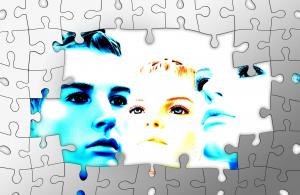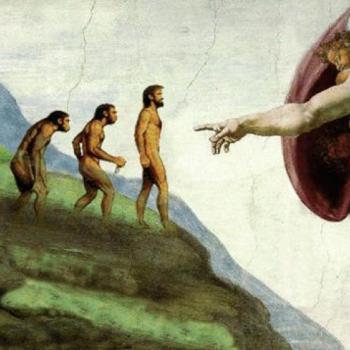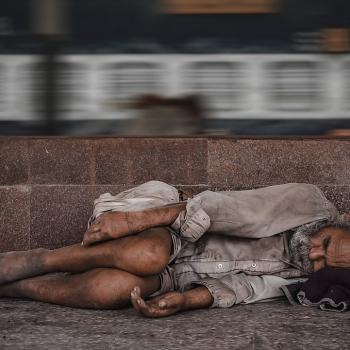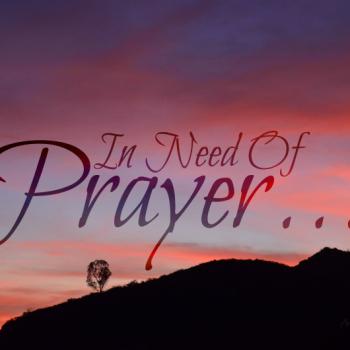Can we believe that God loves us as an individual?
Can we believe not just that God loves the entire world, even those who miss the mark, but that God really does love us as an individual enough to take care of us? Feeling “unworthy” limits our expectations. Entitlement is the opposite, but just as destructive. Feeling unworthy is something we have to overcome.
“See what great love the Father has lavished on us, that we should be called children of God!” (1 John 3:1 NIV)

We should neither feel unworthy nor entitled. An example of entitlement is that just because we try to be good servants or have wealth, this doesn’t mean we’re more worthy of God’s gifts than others. We’re all worthy. God’s gifts are an act of God’s grace toward us. His grace in this context is his love and goodwill toward us.
Our expectations of prayer, and even our willingness to ask God for help, are often tied to our sense of worthiness and our lack of understanding of people and ourselves. This post is a deeper dive.
None of us are perfect and worthy
In our society we create the idea that some are more deserving than others. Some get more wealth, simply because they have wealth. Certain jobs acquire more income and perks. We have this notion that some people are worth more than others. But to God all people are the same. We have to abandon notions of who is worthy when it comes to God. We’re all worthy.
People are like a puzzle
In many ways we’re like children. I like to say that children are under development, and not all the puzzle pieces are in place, so we love and tolerate them as they learn and mature. We don’t expect them to have adult judgement and behave unselfishly. We try to give them their best life while they learn and mature.
Adults are also under development. We haven’t all gained the same maturity and wisdom, and certainly none of us are at the peak. We’re a work in progress – very true for me. We have to be tolerant of each other just as God is tolerant of us despite some missing puzzle pieces. We expect adults to behave as if they have attained all wisdom. Eh, no. But we’re as worthy as children. We forget, we’re God’s children.
We’re all in a state of imperfection
We can’t let our state of imperfection or that we don’t do as much as others make us think we shouldn’t get what God wants to give us and nullify our prayers. Growth isn’t overnight, and for many it takes most of their lives to stop doing things that hurt themselves or others.
We don’t stop feeding our kids because they don’t “grow up” fast enough. Consider that studies show that New Adults (age 18 to 30) don’t fully appreciate the consequences of their actions until around age 27. That also happens to be the average age when they move out of their parent’s home and get married. Maybe that’s smart, rather than getting married right out of high school or secondary education.
We expect a lot out of people and ourselves, and that’s not a bad thing. But we also have to be understanding and tolerant of ourselves and others. And that applies to prayer expectations as well.
Others first, ourselves last, or not at all
There are many reasons why people don’t ask in prayer. Putting others first is often one of them. We forget that God loves us just as much as those we serve, including serving our families.
Mother Theresa was a saint who lived selflessly, giving all to the very poorest. But God had not given her a husband and children. God made us each unique and loves each one of us for who we are in the life he has given us, each with our own specific talents and purposes. I often hear of those who put others first, neglect themselves, and often don’t feel worthy. Perhaps these people are the worthiest of all.
For example, many people look at the cost of medical care and don’t feel they are “worth it,” so they don’t pray and don’t seek medical assistance. Maybe they feel this way because they don’t make enough money in a society where money is above all, so they feel worthless. Maybe it’s because they don’t want to burden their families with debt.
The problem of not seeking medical care is severe.
It’s a good thing many conditions don’t need a doctor, because according to a 2018 University of Chicago survey, around 40% of people fear medical bills more than they fear their disease. Life may not be worth living if your family has to become destitute because medical treatment is so expensive. Thirty-three percent of people have had to choose between medical treatment and basic necessities. This is unthinkable and unconscionable.
This is getting worse. Unfortunately 45% of people in the US now have chronic disease, some of which is caused by or controlled by their own behavior. So we often feel it’s our own fault so we don’t deserve treatment. Certainly substance abuse harms our health, but for many, quitting is an insurmountable task. And there are often underlying problems that need fixed first. We need help to overcome problems.
False equivalencies
We are all human beings, and all equal in God’s sight. Too bad we don’t see others through God’s eyes like we should. Instead we place value on people according to what they do or how much money they have. A mother who for many reasons can’t get an education to earn a better living, and who is raising three children, we somehow see as less deserving than a mother with a college education, an inherited stock portfolio, and a well-paying job.
In other words, we worship money. The golden calf is more important than the lives of human beings. We have to ask ourselves if we would rather have gold plated toilet seats than help others be equal.
Pearls before swine
It takes wisdom to know how to help others. We’ve all heard the stories of those who win the lottery and are broke a few months later. Helping others is a slow task of building and helping them learn how to control their finances, their assets, and themselves. Unfortunately some never learn.
Helping others is not an all or nothing task. Sometimes we should look for those who have the wisdom to know how to do it, and assign the tasks and resources to them. While being one step removed from assisting others may not have quite the same feeling of benevolence, it can be more effective.
We generally have a sack of things in our trunk to give to the homeless and stranded. We don’t care that some of them may be moochers – that doesn’t relieve us of the responsibility to help those who genuinely need it. There is no way that people can determine who is a moocher and who is in genuine need when they are standing next to a stop sign with a sign that says, “family to feed.” So we give to all, and include a list of agencies that can give help.
Take Home Points
Some of us may have more ethical and moral maturity than others, but every one of us misses the mark. Regardless of what we do in this life, or how much money we have, none of us are more deserving than another in the eyes of God, and shouldn’t be in each other’s eyes. No one should feel they don’t “deserve” God’s help no matter how little money they have, or what position.
We may be filled with compassion for others, and badly want to help, but sometimes the best approach is to get guidance. Certainly we shouldn’t ignore the plight of others, but we have to find the best ways to assist them.
Pray and keep communicating with God. It works.
Series Links
Some think they deserve to suffer and die
Is prayer a conveyor belt of miracles?
Is the action of God in the universe responsible for much?
Criticism of studies on prayer, and of science
Science and philosophy have their own standard: 100%
_________________
Our answer is God. God’s answer is us. Together we make the world a better place.
– Dorian














